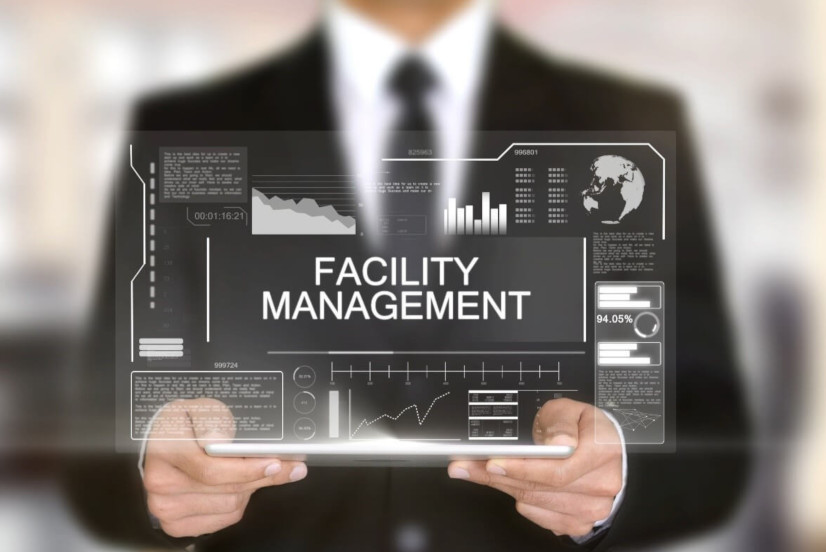How Total Facility Management Helps Organizations Enhance Resources
How Total Facility Management Helps Organizations Enhance Resources
Blog Article
Top Benefits of Total Facility Management for Streamlined Procedures
Total Facility Management (TFM) stands for a critical approach to improving functional performance by integrating numerous services, such as maintenance and security, under a unified management framework. This consolidation not only decreases redundancies however also leverages data analytics for informed decision-making and predictive maintenance. TFM promotes structured communication among stakeholders, straightening procedures with more comprehensive organizational goals. The concern continues to be: what particular benefits can organizations harness from taking on TFM, and how might these benefits transform their functional landscape?
Improved Functional Efficiency
Boosted operational efficiency is a key benefit of carrying out total facility management (TFM) strategies. TFM encompasses a detailed approach to handling a facility's sources, processes, and facilities, ultimately enhancing procedures. By consolidating different solutions-- such as upkeep, room, cleaning, and safety and security management-- TFM lessens redundancies and boosts control amongst different functional features.
The integration of technology additional amplifies this effectiveness. Advanced facility management systems supply real-time data analytics, making it possible for facility supervisors to make informed choices that improve operations and resource allocation. Anticipating maintenance techniques, for instance, prepare for tools failings before they occur, reducing downtime and extending property lifespan.
Additionally, TFM promotes standard procedures throughout different divisions, guaranteeing consistency and top quality in service delivery. This harmony decreases functional disturbances and fosters an extra joint working setting. Consequently, workers can concentrate on their core duties, driving efficiency and improving general efficiency.

Cost Decrease and Financial Savings
Applying total facility management (TFM) not only boosts functional effectiveness however additionally substantially adds to cost decrease and cost savings. By consolidating different services under a solitary management framework, organizations can remove redundancies and improve procedures, thus decreasing functional costs. TFM makes it possible for better purchase methods, enabling firms to discuss bulk purchasing agreements with vendors and provider, leading to lower prices.
In addition, TFM highlights preventative maintenance, which reduces unforeseen malfunctions and extends the lifespan of vital equipment. This positive strategy not just reduces fixing prices but also enhances the reliability of facilitiess, making sure undisturbed procedures. In addition, power effectiveness efforts, usually a vital focus of TFM, lead to substantial savings on utility bills, as facilitiess are enhanced for reduced energy usage.
Improved Resource Management
Efficient source management is a keystone of total facility management (TFM), making it possible for companies to optimize using their assets and labor force. By implementing TFM methods, companies can thoroughly assess their source allotment, ensuring that every property is made use of effectively and properly. This all natural method enables for the identification of underperforming resources and the possibility for reallocation or improvement.
Additionally, TFM helps with the integration of innovation for real-time tracking of resources, which helps in forecasting maintenance needs and preventing expensive downtime. By leveraging information analytics, companies can make educated decisions concerning source deployment, inevitably enhancing productivity and minimizing waste.
Moreover, TFM promotes a culture of continual improvement, encouraging teams to regularly assess and fine-tune their source management practices. Total Facility Management. This proactive stance not just decreases functional interruptions yet likewise promotes technology, as staff members are equipped to suggest improvements based Check This Out on their direct experiences with resource usage
Streamlined Interaction Networks
In total facility management, structured communication channels play a vital role in promoting collaboration and effectiveness throughout teams. Reliable communication ensures that all stakeholders, consisting of facility supervisors, upkeep personnel, and provider, are lined up with business objectives and operational demands. By establishing clear lines of interaction, teams can promptly attend to worries, share updates, and execute solutions, thereby reducing downtime and enhancing efficiency.
With centralized interaction systems, details is quickly available, permitting for real-time updates on upkeep demands, source allocation, and project timelines. This transparency not just reduces misunderstandings but likewise equips workers to make educated decisions swiftly. Moreover, structured interaction facilitates better sychronisation throughout emergencies, making sure that all workers are educated and can react quickly.

Enhanced Concentrate On Core Activities
A vital advantage of total facility management is the enhanced emphasis on core activities, enabling organizations to focus on their primary visit this page service objectives - Total Facility Management. By contracting out non-core functions such as upkeep, safety, and cleaning, business can redirect their sources and energy towards calculated efforts that directly add to their affordable benefit and development
Total facility management integrates various functional tasks under a single umbrella, cultivating effectiveness and lessening redundancy. This debt consolidation not only simplifies processes yet also boosts responsibility, guaranteeing that every aspect of the facility runs sympathetically without diverting attention from what truly matters-- core company functions.
Furthermore, this approach makes it possible for staff members to devote their effort and time to tasks that drive development and improve customer complete satisfaction, as opposed to obtaining slowed down by functional difficulties. With a trusted facility management partner dealing with day-to-day operations, organizations can attain better agility, respond quickly to market changes, and preserve a sharper concentrate on their mission.
Inevitably, raised concentrate on core activities leads to improved general efficiency, allowing organizations to strengthen their market setting and satisfy their calculated objectives better. - Total Facility Management
Conclusion
In conclusion, Total Facility Management significantly enhances functional performance by consolidating important services and leveraging data analytics for educated decision-making. Price reductions and improved other source management add to general financial savings, while streamlined communication networks foster collaboration amongst stakeholders. By allowing organizations to concentrate on core tasks, TFM not only maximizes performance but also strengthens market positioning. The assimilation of these advantages highlights the relevance of TFM in attaining lasting functional excellence.
Total Facility Management (TFM) represents a strategic technique to boosting operational efficiency by integrating different solutions, such as maintenance and safety, under a unified management framework.Enhanced operational effectiveness is a main benefit of implementing total facility management (TFM) approaches. Advanced facility management systems give real-time data analytics, allowing facility managers to make informed decisions that improve process and source appropriation.Executing total facility management (TFM) not only increases operational performance however likewise substantially contributes to cost decrease and financial savings.Reliable source management is a cornerstone of total facility management (TFM), enabling companies to enhance the use of their properties and labor force.
Report this page